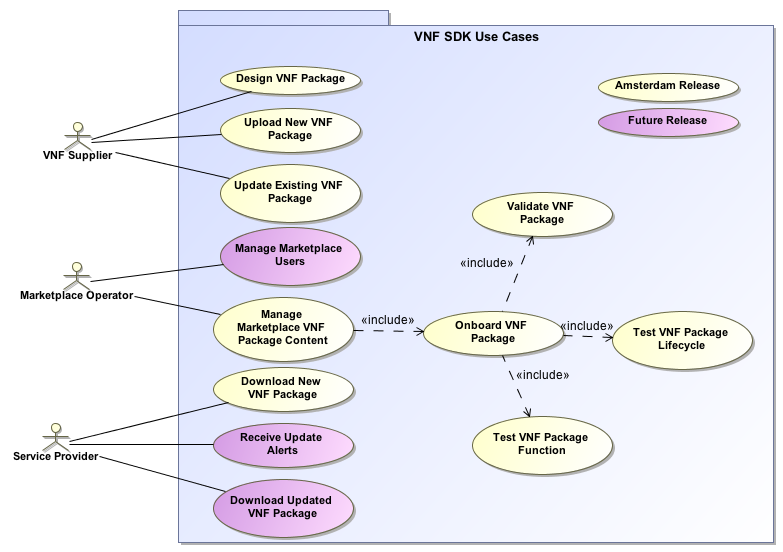| Note |
|---|
This is considered a draft. |
| Table of Contents |
|---|
Proposal 1
...
Name of Use Case:
<give it a name>
Use Case Authors:
<who wrote the use case>
Description:
<provide a description on what the use case does>
Users and Benefit:
< who would benefit from this use case, how and under what scenarios >
VNF:
< list the VNFs this use case will automate/impact/use, be both generic like EPC and specific in terms of software used e.g. which EPC code or vendor product>
Work Flows:
< describe the work flows which are part of the use case. E.g. Instantiation, Deletion of VNF >
Controll Automation:
< describe any control automation that is part of the use case E.g. auto scaling, auto fault detection or recovery>
Project Impact:
< list all projects that are impacted by this use case and identify any project which would have to be created >
Work Commitment:
< identify who is committing to work on this use case and on which part>
Proposal 2
Use Case UML Diagram
<Insert UML Use Case Diagram>
Use cases define how different users interact with a system under design. Each use case represents an action that may be performed by a user (defined in UML as an Actor with a user persona).
Use Case Definitions
Each Use Case from the UML Use Case Diagram is defined in this section.
<Use Case Title>
| Section | Description |
|---|---|
| ID | |
| Title | |
| Description | |
| Primary Actor | |
| Preconditions | |
| Main Success Scenario | |
| Alternate Scenarios | |
| Exception Scenarios | |
| Post Conditions | |
| JIRA Traceability |
